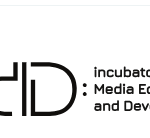On 12 June 2023 (democracy day), President Bola Ahmed Tinubu signed into law the student loan bill to establish an education bank to provide interest-free loans to Nigerian students seeking higher education.
The bill is titled; “An Act to Provide Easy Access to Higher Education For Nigerians Through Interest-Free Loans From Nigeria Education Bank Established in this Act with a View To Provide Education for All Nigerians and for Related Matters.”
- How will Nigerian students benefit from this bill?
- Who is eligible for student loans?
- What are the terms and conditions of getting a loan approval?
- How do you apply for a student loan?
- How and when can students repay the loan?
These are some of the questions Nigerian students and parents are asking. We will answer these questions and more in this article.
Why education loans for Nigerian students?
About N1.08 trillion was budgeted for education in the 2023 budget. This is about 5.3 percent of the total N20.5 trillion budget, below the 15 percent minimum spending recommended for developing countries by the United Nations Education, Scientific and Cultural Organisation (UNESCO).
The pilot student loan regime is aimed at expanding access to education to all Nigerians regardless of their backgrounds. At the same time, this will give institutions the ability to charge more cost-reflective tuition fees. With the education bank in place, Nigerians willing to attain higher education qualifications can afford fees that the schools may soon introduce.
The loan program will have a maximum limit any student can borrow and must have flexible repayment provisions.
Also read Ultimate Guide To Best International Student Loans For African Students 2023
What does the student loan entail?
The Act will enable indigent students to access federal government loans to fund their higher education. Here are the features of the Students Loan Act:
- A Nigerian Education Bank shall be established to provide loans for Nigerians for educational purposes.
- The loan shall be accessible only to indigent students studying within Nigeria.
- The Act offers loans for indigent Nigerian students seeking higher education in government-owned universities, polytechnics, and colleges of education.
- Loans will be interest-free. In other words, beneficiaries will only pay back the amount they collect.
- All qualified Nigerian students will have equal rights to access the loan without any form of discrimination arising from gender, religion, tribe, position, or disability.
- The loan will be given only for the payment of tuition fees.
eligibility requirements
Nigerian students must meet the following requirement to be eligible for the student loan:
- Admission: The student applicants must have secured admission into any of the Nigerian universities, polytechnics, colleges of education or any vocational school established by the Federal Government or the government of any Stale of the Federation.
- Income Limit: The student applicants’ income or family income must be less than N500,000 (five hundred thousand naira) per annum.
- Guarantors: The student applicants must provide at least two guarantors. Each of the guarantors must be a civil servant of not less than level 12 in the service; or a lawyer with at least 10 (ten) years post-call experience; a Judicial officer; or a Justice Peace.
Ineligibility for Loan Access
The following circumstances disqualify students from accessing the loan.
- Previous Loan Default: If a student is proven to have defaulted on any previous loan granted by any organization, they are disqualified from accessing the loan.
- Exam Malpractice: If a student is found guilty of exam malpractice by any school authority, they will be disqualified from receiving the loan.
- Conviction of Felony or Offenses of Dishonesty or Fraud: Students who have been convicted of a felony or any offense involving dishonesty or fraud are ineligible for the loan.
- Drug Offenses: Students who have been convicted of drug offenses are disqualified from accessing the loan.
- Parental Loan Default: If any of the student’s parents have defaulted on a student loan or any other loan granted to them, the student will be disqualified from receiving the loan.
These disqualification criteria ensure that the loan is allocated to students who meet the necessary ethical standards and have a genuine commitment to their academic pursuits.
Also read 15 Ways to Pay for Your Education If You Don’t Have Money
How to Apply for student loan
All applications must be submitted through the applicant’s bank to the Chairman of the Committee established under the Act. Each application must be accompanied by the required documents.
- A copy of the student’s admission letter.
- A cover letter signed by the vice-chancellor, rector, or the head of the institution, along with the student affairs officer of the institution.
- A letter from the guarantors addressed to the Chairman of the Committee, recommending the student for the loan and accepting liability in the event of default.
- Two passport photographs from each guarantor, information on the guarantors’ employment and proof of employment with the named organization, as well as particulars of the guarantors’ business registration or relevant authority if self-employed.
The Committee is obligated to communicate the applicant’s application status within 14 days of receiving the application.
Timely Processing: Processing of application and disbursement shall be completed within 30 days of the application reaching the Chairman of the Committee. This ensures that loans are processed efficiently and promptly.
Loan Repayment
- Loan repayment shall commence two years after completion of the National Youth Service Corps program.
- Repayment shall be facilitated through a direct deduction of 10% of the beneficiary’s salary at source by the employer. The deducted amount will be credited to the Fund.
- In the event of a job change, beneficiaries are required to notify the Chairman of the Committee within 30 days of resuming employment with the new employer, providing details of the new job.
- Self-employed beneficiaries are required to remit 10% of their total monthly profit to the Fund.
- Self-employed individuals assuming this status must submit relevant information, such as business name, address, location, registration documents (if applicable), bank details, partner names, and director/shareholder names, to the Committee within 60 days.
Any individual who defaults on the loan or aids in such default commits an offense. Upon conviction, the defaulter is liable to a fine of N500,000 or imprisonment for a term of two years or both.
The loan repayment terms and penalties aim to ensure timely and responsible repayment, contributing to the sustainability of the loan program and the availability of funds for future students.
Does student loan cover study abroad for Nigerian students?
The Student Loan Act does not include studying outside Nigeria. Hence international education is not covered for Nigerian students. If you are looking to study abroad, you have to look for other student loan options. Thankfully, we help Nigerian students secure loans to study in US and Canada for master programs.
If you are planning to study in US or Canada for master program, click here to start your international student loan application.
Conclusion
If implemented efficiently, the student loan act will make education accessible for everyday Nigerians. However, a few questions come to mind:
- What will the new tuition fees at public universities and colleges look like?
- Will families that earn just over N500,000 per annum (N42,000 per month) be able to afford the new fees?
- Does Nigeria have enough universities and colleges to admit students as demand increases?
I guess we’ll just have to wait to find the answers.









